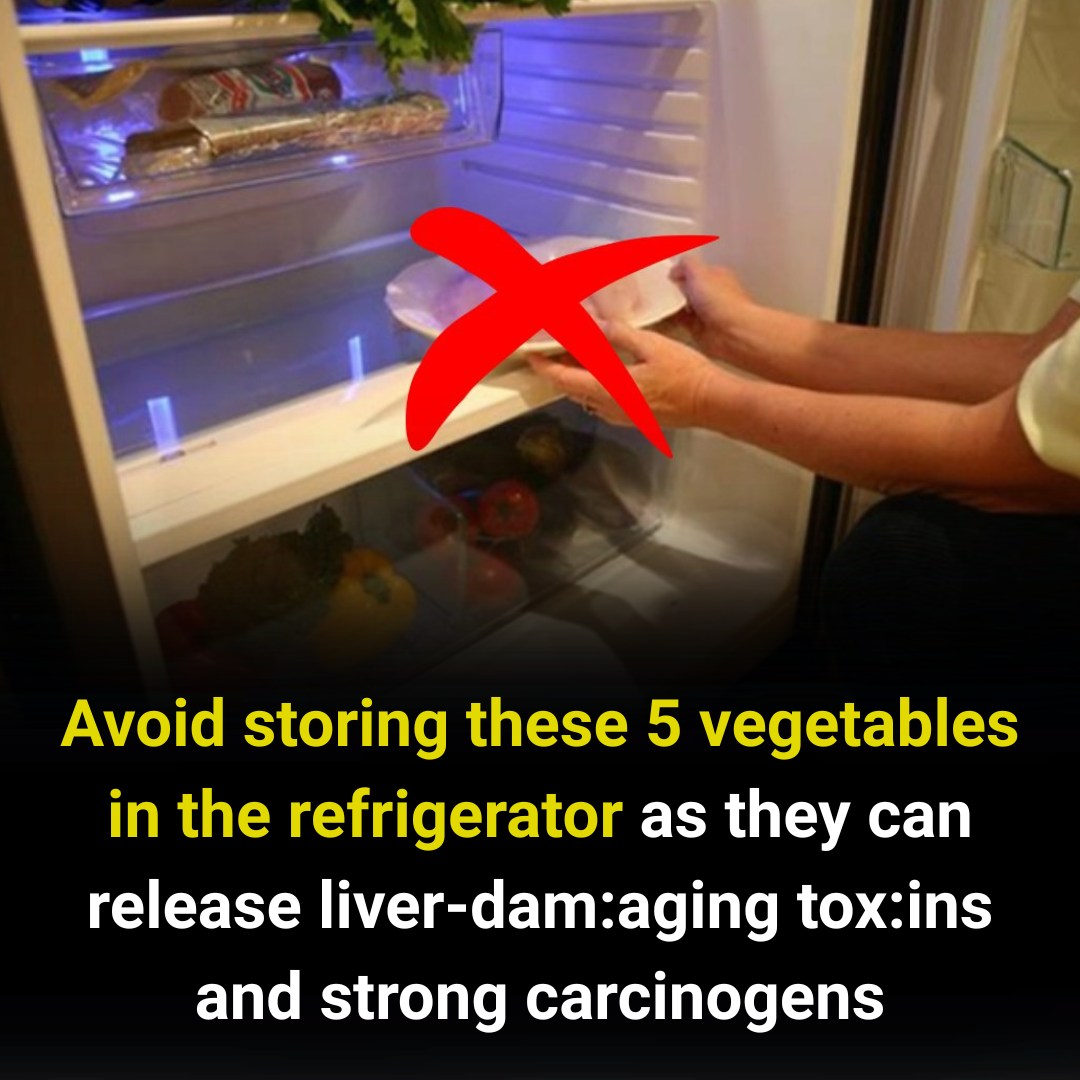Don’t Chill These 5 Veggies — Store Them Smart to Preserve Flavor & Freshness 🌿
Keeping your produce fresh can be easier than you think—just avoid sticking a few key veggies in the fridge! It might surprise you, but colder temps can ruin texture, flavor, and even shorten shelf life. Here are five everyday vegetables you should never refrigerate, how to store them properly, and why it matters.
1. Onions
- Why not fridge-ready?
Fridge moisture softens onions and may cause them to spoil or develop mold faster kitchenaid.com+5simplyrecipes.com+5yahoo.com+5southernliving.com+1kitchenaid.com+1. - Store how?
Keep in a cool, dry, dark place—pantry, cupboard, or mesh bag. Avoid pairing with potatoes, which create moisture balance issues .
2. Potatoes
- Why no cold?
The fridge turns potato starch into sugar, resulting in a gritty, sweet flavor and texture—and can form acrylamide, a potential toxin when cooked bhg.com+11simplyrecipes.com+11reddit.com+11. - Storage tip:
Store in a paper bag, basket, or breathable container, away from light and heat.
3. Winter Squash (e.g., Butternut, Acorn, Pumpkin)
- Why skip the chill?
These holders of cold slowly degrade texture and sweetness when refrigerated unlockfood.ca+4bhg.com+4marthastewart.com+4yahoo.com. - Best location:
Store at room temperature, in a cool, dry area for several months before use.
4. Sweet Potatoes
- Fridge pitfalls:
Like regular potatoes, cold turns their starches into sugar, altering flavor and texture youtube.com+15bhg.com+15kitchenaid.com+15. - How to store:
Let them rest at cool, dry room temperature, in a basket or pantry.
5. Tomatoes
- Why chilling ruins them:
Refrigerator cold halts ripening and intensifies grainy “mealy” textures, diminishing their once-zesty flavor kitchenaid.com+6bhg.com+6simplyrecipes.com+6southernliving.com+1doubleupfoodbucks.org+1. - Where they thrive:
Keep on the counter—ideally around 55–70°F and out of direct sun until ripe. Refrigerate only if fully ripe and not eaten right away .
💡 Bonus: Always separate ethylene producers
Onions, potatoes, and tomatoes release ethylene gas, which speeds up ripening in nearby produce. Keep them separated from sensitive items like apples, broccoli, or leafy greens to avoid premature spoilage doubleupfoodbucks.org+1marthastewart.com+1.
🔄 What Happens If You Fridge Them: Quick Recap
| Vegetable | Fridge Impact |
|---|---|
| Onions | Turns soft, mold increases |
| Potatoes | Grittier texture, sweeter taste, carcinogen potential |
| Winter squash | Flavor loss, shortened shelf life |
| Sweet potatoes | Texture sweetness imbalance |
| Tomatoes | Loses flavor, becomes mealy |
✅ Best Storage Practices
- Cool, dry, dark: Ideal for long-term storage.
- No sealed plastic: Use breathable containers or mesh bags.
- Check periodically: Remove soft or sprouting pieces.
- Keep away from ethylene: Separate tomatoes/onions from apples and leafy greens.
🌟 Why It Matters
- Maximize shelf life – Save money and reduce kitchen waste.
- Enjoy full flavor – Let produce develop texture naturally.
- Maintain nutrients – Appropriate storage preserves vitamins and taste.
🧑🍳 Reddit Wisdom
One user shared this kitchen motto:
“If it’s not in the cooler at the grocery, it doesn’t go in the fridge.” marthastewart.com+1kitchenaid.com+1simplyrecipes.com+1southernliving.com+1kitchenaid.com+4bhg.com+4southernliving.com+4doubleupfoodbucks.orgsouthernliving.com+7reddit.com+7marthastewart.com+7unlockfood.ca+1kitchenaid.com+1
Another emphasized nutrient loss in unnecessarily chilled produce:
“Honestly… most vegetables are fine not being refrigerated, they just last longer in the fridge. But they also lose a lot of their nutrients in the process.” reddit.com
Bottom Line
There’s a reason first-time cooks learn not to refrigerate potatoes or onions: it’s a food-quality and taste master trick. For tomatoes, winter squash, and sweet potatoes, room temperature always wins. And separating these from sensitive veggies keeps everything fresh longer. Next time you stock your counter, remember: cool, dry, dark, and ethylene-free is how you store them best.

